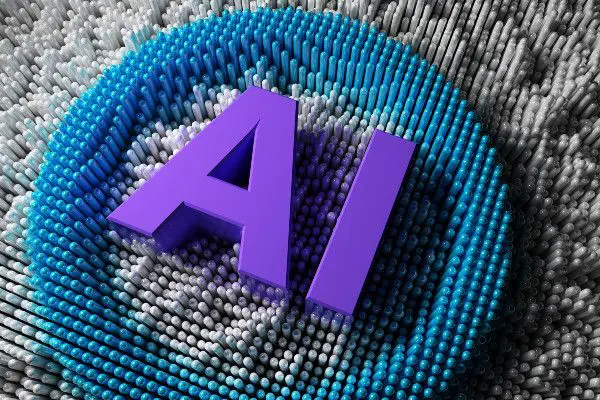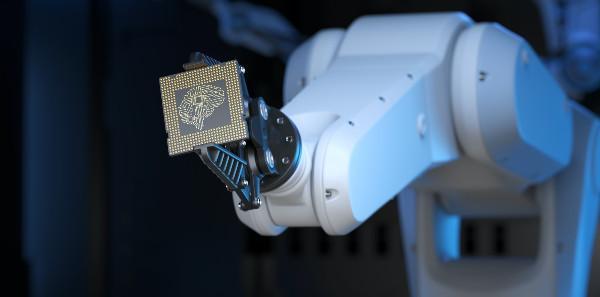Introduction
The world as we know it has been significantly transformed by the advent of artificial intelligence. These transformations are not a distant futuristic dream but rather a tangible present reality. From your daily interactions with your smartphone’s personal assistant to the operations of global industries, artificial intelligence is a ubiquitous force. This blog post aims to examine the expansive landscape of AI applications, focusing on everyday life and various industry sectors. We will delve deep into how this revolutionary technology is reshaping the way we live and conduct business, painting a vivid picture of the AI-empowered world.
The Use of Artificial Intelligence in Everyday Life
Artificial Intelligence, often just out of sight, powers a surprisingly large portion of our day-to-day experiences. The virtual assistant on your smartphone, the recommendation engines on your favorite shopping and streaming sites, the navigation app that helps you avoid traffic—these are all examples of AI making our lives more convenient.
AI-powered virtual assistants like Siri, Google Assistant, and Alexa, for example, have become personal companions to many of us, providing weather updates, answering questions, setting reminders, and even telling jokes. They learn from our interactions to better tailor their responses and functions to individual user preferences, an excellent example of machine learning in action.
Defining the Role of AI in Various Industries
AI’s reach isn’t limited to personal convenience—it extends far into various industries, where it has become a game-changer. Whether it’s finance, manufacturing, education, or agriculture, AI has carved a niche for itself, proving its versatility and efficacy.
In finance, AI-driven algorithms are used for high-frequency trading, fraud detection, portfolio management, and loan underwriting. These applications, besides streamlining operations, have ushered in an era of enhanced accuracy and decision-making efficiency. Meanwhile, in the agriculture sector, AI-powered drones and robots are revolutionizing practices by assisting in crop monitoring, analyzing soil health, and automating irrigation systems, paving the way for precision farming.
Artificial Intelligence and Deep Learning with Python
Are you wearied by deep learning resources that don’t clarify every single line of code? “Artificial Intelligence and Deep Learning with Python” revolutionizes the way deep learning, AI, and Python are introduced to beginners. The author draws an insightful analogy, equating a computer language with any other language, asserting that understanding every component of a sentence or a line of code is vital to generate novel ones. Unlike other resources claiming to be for “beginners”, this book stands out by dissecting and explaining every line of code.
There’s nothing more perplexing than encountering an unexplained line of code after an initially well-explained one. This book ensures a seamless learning journey with comprehensive explanations for each line of code in every project discussed, along with detailed insights into deep learning and AI concepts. Whether you’re a Python novice or a seasoned programmer, this book will guide you through the intriguing applications of Python in diverse AI and deep learning projects.
You’ll dive into captivating projects and topics, including:
- Deep learning applications in audio/music and voice recognition
- Neural network implementations with image files
- Creating an algorithm for predicting stock prices
- Applying AI through Thompson sampling
- Using deep learning for crime statistic predictions
- Binary classification with neural networks
- Building a Convolutional Neural Network (CNN) for your image files
- Teaching your computer to “read” and “comprehend” the English language
- SQL integration with neural networks
About the author: Steven D’Ascoli, an adjunct professor at St. John’s University, is renowned for his multi-disciplinary expertise.
How AI is Transforming the Business Landscape
Artificial Intelligence has emerged as a potent tool in the realm of business, offering a competitive edge to those who harness it effectively. AI has given rise to innovative business models and strategies, while simultaneously enhancing customer experience and operational efficiency.
For instance, businesses are leveraging AI to analyze vast amounts of consumer data, extracting meaningful insights to drive their marketing and sales strategies. Customer service has also been reimagined with the advent of AI chatbots, which provide 24/7 support, instantaneously resolving queries, and freeing up human resources for complex tasks. Moreover, AI’s predictive capabilities are aiding in risk assessment, inventory management, and demand forecasting, thereby optimizing business operations.
Impact of Artificial Intelligence in Healthcare
The healthcare sector is a prominent arena where AI is making substantial inroads. By blending the boundaries of medicine, biology, and technology, AI has introduced a paradigm shift in how we understand, diagnose, and treat diseases.
AI is powering advancements in diagnostic imaging, where machine learning algorithms are trained to detect anomalies in MRI scans, X-rays, and CT scans, often with accuracy surpassing human experts. Additionally, AI-based predictive models are being utilized to forecast patient outcomes, contributing significantly to personalized medicine. It’s also noteworthy to mention the role of AI in drug discovery, where it accelerates the process by predicting the efficacy of potential compounds, a process that traditionally takes several years and significant resources.
The Influence of AI on the Automotive Industry
AI’s transformative influence extends to the automotive industry, where it’s not just enhancing the driving experience but also redefining what it means to drive. From advanced driver-assistance systems (ADAS) to fully autonomous vehicles, AI is at the heart of this automotive revolution.
Automakers are employing AI to develop smarter navigation systems, in-vehicle infotainment, and predictive maintenance features. The ultimate frontier, though, is autonomous driving. Here, AI algorithms analyze data from a host of sensors, lidar, radar, and cameras, enabling the vehicle to perceive its environment, make decisions, and navigate traffic with minimal or no human intervention.
Beyond self-driving capabilities, AI has fostered a slew of innovations like smart parking, traffic congestion reduction, and driver behavior analysis. AI’s applications in automotive manufacturing also cannot be overlooked. Automated assembly lines, predictive maintenance of machinery, and quality control through AI-powered visual inspection are some examples, contributing to efficiency and cost reduction.
AI’s integration in the automotive industry has opened up new business models as well, like ride-hailing services and vehicle sharing platforms, thereby transforming traditional concepts of vehicle ownership and transportation.
Conclusion
From everyday tasks to complex industrial applications, AI has firmly embedded itself in our lives, its influences both profound and wide-ranging. With this surge of AI, it is important to recognize the necessity for responsible use and ethical guidelines, ensuring that its benefits are inclusive and widespread while mitigating potential downsides.
Artificial Intelligence has democratized several aspects of our lives, making services more accessible and efficient. It’s also leading businesses towards a more customer-centric approach, driven by insights derived from AI analysis. As AI continues to evolve, so will its applications, paving the way for a future where AI is not just an optional tool but an integral part of our societal fabric.
The healthcare sector’s strides with AI demonstrate its potential in driving significant improvements in patient care and medical research. The speed and efficiency gained through AI-powered processes could be a game-changer in addressing global health crises.
AI’s impact on the automotive industry heralds a new era in transportation, where safety, efficiency, and convenience are paramount. The journey towards autonomous driving, although challenging, exemplifies the transformative potential of AI, impacting not just the automotive industry, but our very perception of mobility.
As we venture deeper into the AI-enabled world, it is crucial to nurture a comprehensive understanding of this technology, empowering ourselves to harness its potential effectively and ethically. The exploration of AI is not merely a journey into the realm of technology, but a voyage into the future of human potential.

Redefining Business Conversations: A Deep Dive into the ChatGPT Login Experience
83 / 100 Introduction In the age of digital transformation, businesses are increasingly harnessing the power of AI to streamline operations, boost productivity, and deliver


